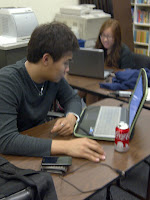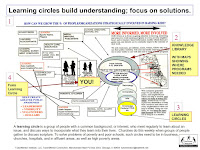If you search this blog for "Twitter" you'll find numerous examples, dating back to before 2013, where I've embedded Tweets or used links to Twitter accounts, like, my @tutormentorteam, to draw readers to the people and ideas I've found on that platform.
If you've visited my account you'll see an extensive use of lists, to help me narrow my focus on who I'm learning from, and to help others find tutor/mentor programs in Chicago. Below is one example.
This is my Twitter list of Chicago tutor, mentor and learning programs.
Now, with the recent degrading of Twitter, including changing the name to
X, that platfom is losing its value. Perhaps it will go away, like so many past platforms like YahooGroups, Google+, etc.
In my worst dreams, all the links I've embedded in this blog that point to Twitter will no longer work. Those posts won't even be available in the Internet archive. What a tragic loss of knowledge, for me, and for millions of others who have used Twitter as a resource.
I hope it does not happen. But ....
Maybe blogs will rise to greater importance. With that in mind, here are some resources. First, is the
library of blogs that I've been building since the mid 2000s. You can find my lists
on this page.
Next, take a look at my lists of blogs on Inoreader.com.
This link points to #clmooc network blogs that I follow. You can see on the graphic that I have many categories.
Inoreader.com is valuable because it shows the latest article posted by each blogger, along with past articles. I check this at least once a week to see latest blog articles from some of the people I first met on Twitter. There is a small monthly fee to use this site, but it's an archive that I value.
You know, I might have paid the $8 monthly fee Musk was demanding if it weren't done in such a hard-handed manner.
I'm not the only one collecting links to blog articles. I recently pointed to
this list, curated by Kevin Hodgson, an educator from Western Massachusetts.
Here's
another platform that is sharing links to educator bloggers. This was created by Susan Spellman, an educator from Western Canada, for the #ETMOOC2 learning group.
In my library, and on my Inoreader.com page I have sub-lists of blogs by tutor/mentor programs in Chicago and beyond. I have consistently encouraged the use of blogs by non-profit youth-serving organizations, but too few still do this. Furthermore, of those who do use blogs, they mostly are using them to share fundraising information. Too few write about the challenges they face or the strategies they use to help connect kids and volunteers in on-going relationship.
Many of the blogs I included in my library and on Inoreader.com contain links to other blogs. Below if an example.
This blog is written by Terry Elliott, an educator from Kentucky, who I met on Twitter. I'm honored to be included on his lists.
I do the same on this blog. Look on the left side below the tags and you'll find a list of links to other sites I host, and to some of the blogs I follow. If you write a blog, you can do this, too.
I've used concept maps since 2005 to show information in my library and to share strategies for helping build and sustain long-term, volunteer-based tutor/mentor programs.
Below is a
concept map showing other organizations in Chicago who serve as intermediaries, like the Tutor/Mentor Institute, LLC, helping groups of youth-serving organizations.
Open the links under each node and visit the website of the organization. Look around. You may find a blog by the organization, but do you see a section showing links to blogs by members of their network (the organizations they are supporting?)
That's not happening. But with your encouragement, it could.
I'm still using Twitter, but I also use LinkedIn, Instagram, Facebook, Mastodon, YouTube and other social media platforms. You can find links to my sites
on this page.
Since I started using these platforms in the late 2000s their value has declined. When I started using LinkedIn I joined many groups, and started my own. There was a lot of interaction. Now, while I'm still part of these groups, I visit them much less often.
Facebook as had the same trajectory. What started out as a great way to connect and share ideas has become far less than that. It's still a great place to connect with distant family, college friends and alumni of the tutor/mentor programs I led, but it does not have the same range of interactions as I found on Twitter.
Note. I do not buy advertising on these platforms, which is why my reach is so low. I don't have the money to do that.
So, with Twitter declining in value, maybe it's time to try to give renewed attention to sharing and exchanging ideas via blogs.
Thanks for reading. Please subscribe to this blog and share it with your network. Add a link to my blogs in your own library.








































